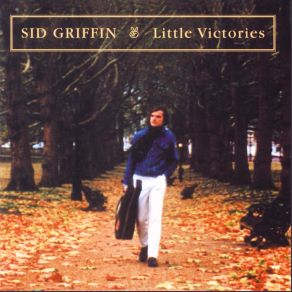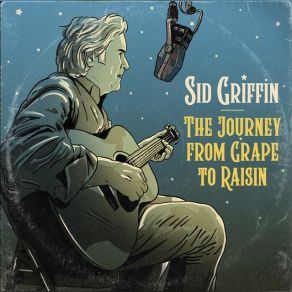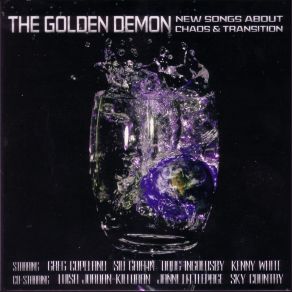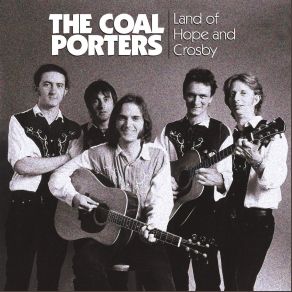Sid Griffin
Wikimp3 information about the music of Sid Griffin. On our website we have 7 albums and 5 collections of artist Sid Griffin. You can find useful information and download songs of this artist. We also know that Sid Griffin represents Country genres.
Biography
[Edit]Sid Griffin is that rare artist who has distinguished himself in a number of contexts and on two continents. While best known as the leader the Long Ryders, as a musician, songwriter, producer, author, and archivist, Griffin has become a pivotal member of the roots rock movement, both in the United States and the United Kingdom.
Born in the suburbs of Louisville, KY, Sid Griffin developed an appetite for music as a teenager, playing in a cover band called the Frosties that specialized in hits of the '50s and '60s, and in 1977, at the age of 21, he moved to California, eager to immerse himself in the Los Angeles rock scene (though he was also attending law school to appease his parents). Griffin soon joined a short-lived punk outfit called Death Wish, but in 1979 his musical taste took a turn to the sounds of the past, and he jumped ship to play guitar with a group called the Unclaimed, who specialized in '60s-style garage rock. While Griffin's musical enthusiasms continued to be rooted in the 1960s, he began to nurture a passionate interest in folk-rock and country-rock, in particular the sounds of the Byrds and the Flying Burrito Brothers.
By 1981, Griffin had decided it was time to move on, and he and two other members of the Unclaimed — bassist Barry Shank and drummer Matt Roberts — defected to form a new group, the Long Ryders. One of Griffin's pals, Steve Wynn, stepped in to play guitar, but he soon left to form his own (much noisier) band, Dream Syndicate; however, Wynn and Griffin stayed in touch, and the Long Ryders and Dream Syndicate (along with Green on Red and Rain Parade) became known as the key members of a scene dubbed "the Paisley Underground," owing to their shared allegiance to the sounds and musical integrity of the mid- to late '60s, though the influence manifested itself in very different ways within each group. (Wynn later recruited Griffin and two other Long Ryders to backup himself and Dan Stuart for the Danny & Dusty album The Lost Weekend.) By 1983, the Long Ryders had a stable lineup — Griffin on guitar and lead vocals, Stephen McCarthy on guitar and vocals, Des Brewer on bass, and Greg Sowders on drums — and released their first record, an EP called 10-5-60, that merged the jangle of '60s folk-rock, the twang of early country-rock, and the energy of garage punk. The album earned enthusiastic reviews in both America and Europe, and the band developed a loyal following on the L.A. club circuit. The following year, the band had a new bass player, Tom Stevens, and released their first full-length album, Native Sons, which dug even deeper into the band's passion for roots music (even featuring a cameo appearance by former Byrds vocalist Gene Clark), and a growing political consciousness. More rave reviews followed, as in 1985, the band went to England for the first time, where they were greeted as conquering heroes by the rock press. Later that same year, thanks in part to their success in the U.K., the band signed a major label deal with Island Records.
State of Our Union was the band's first album for Island, selling well in England, where the anthemic "Looking for Lewis and Clark" became a hit single; the band also became a potent live attraction in Spain. But while State of Our Union quickly became the band's biggest selling album, it failed to break out of the "college radio" market in the United States, a frustrating development for the group, who found themselves more popular in Europe than at home. Relations between the group and Island became strained after the release of the harder rocking Two Fisted Tales, and Sid Griffin was bitterly disappointed with what he saw as the label's failure to promote the group properly. As the band began negotiations for a release from their contract, Tom Stevens left the group, and after several gigs with a replacement bassist, Stephen McCarthy also turned in his notice, leading Griffin and his bandmates to dissolve the Long Ryders in 1988. The group released a raucous live cassette, Metallic B.O., through their fan club as a final farewell later that year.
After the breakup of the Long Ryders, Sid Griffin took a short time off from music, but by the end of 1988 he unveiled the first lineup of his new group, Coal Porters, which featured fellow Long Ryder Greg Sowders on drums, Chris Buessem on guitar, and Ian Thomson on bass; musically, the new band picked up where the Long Ryders left off, though with a lighter and less aggressive touch. The band had trouble finding a record label in the United States, but were soon offered a deal with an independent label in Australia, and their debut EP, Rebels Without Applause, was released Down Under in 1991; by this time, Greg Sowders opted to retire from performing (though he occasionally did studio sessions with Griffin), and he was replaced by Billy Block, while Andy Kaulkin stepped in on keyboards. Not surprisingly, the band soon developed a larger audience in the U.K. than in the U.S., and when Griffin married Kate St. John, a British musician who had worked with the Dream Academy and Van Morrison, he decided to relocate to London and restart the band from there. Ian Thomson remained in the group, while Pat McGarvey stepped in on bass and Bob Stone played keyboards. However, Coal Porters had trouble holding on to a stable lineup, and while they would tour frequently and release two studio albums (Land of Hope and Crosby and Los London) and two live sets (Whoa, Big Fella! and The Gram Parson Tribute Concert) between 1993 and 1998, close to a dozen musicians floated in and out of the band during this period. The group's 1998 EP, EP Roulette, also served as the calling card for Griffin's next project, Western Electric, whose debut album found Griffin blending his countrified roots rock melodies with a more contemporary approach, with his contemplative songs augmented by subtle use of electronics and drum loops. At the same time, Griffin also displayed a renewed interest in acoustic music, releasing a low-key solo album, Little Victories, in 1997, restyling Coal Porters into a modern bluegrass band who toured the U.K., and produced a 1998 album for British folk stalwarts Lindisfarne.
In 1985, Sid Griffin launched a second career as an author when he published Gram Parsons: A Musical Biography, the first full-length book about Griffin's musical hero. Since then, Griffin has maintained a busy schedule as a music journalist and author, writing books and contributing feature stories and reviews to publications such as Mojo, Q, Country Music International, and many others. He's also penned liner notes for historical reissues of music by such artists as the Flying Burrito Brothers, Gene Clark, the Byrds, Phil Ochs, and the Everly Brothers. Books authored by Griffin during the 21st century include Bluegrass Guitar: Know the Players, Play the Music (2006); Million Dollar Bash: Bob Dylan, the Band, and the Basement Tapes (2007); and Shelter from the Storm: Bob Dylan's Rolling Thunder Years (2010).
Title: Little Victories
Artist: Sid Griffin
Genre: Rock, Folk Rock, Country, Alternative Country, Songwriter/Lyricist, Psychedelic
Collections
Title: US Rockin' Tracks!
Genre: Rock, Rock & Roll
Title: U.S. Rock - Back On Track
Genre: Rock
Title: U.S. Rock - Back On Track
Genre: Rock
Title: The Golden Demon (New Songs About Chaos & Transition)
Genre: Pop
Featuring albums
Title: Land of Hope & Crosby
Artist: The Coal Porters
Genre: Rock, Country, Alternative Country, Alternative
Title: Lowlands And Friends Play Townes Van Zandt's Last Set
Artist: Barry Marshall-Everitt
Genre: Rock















